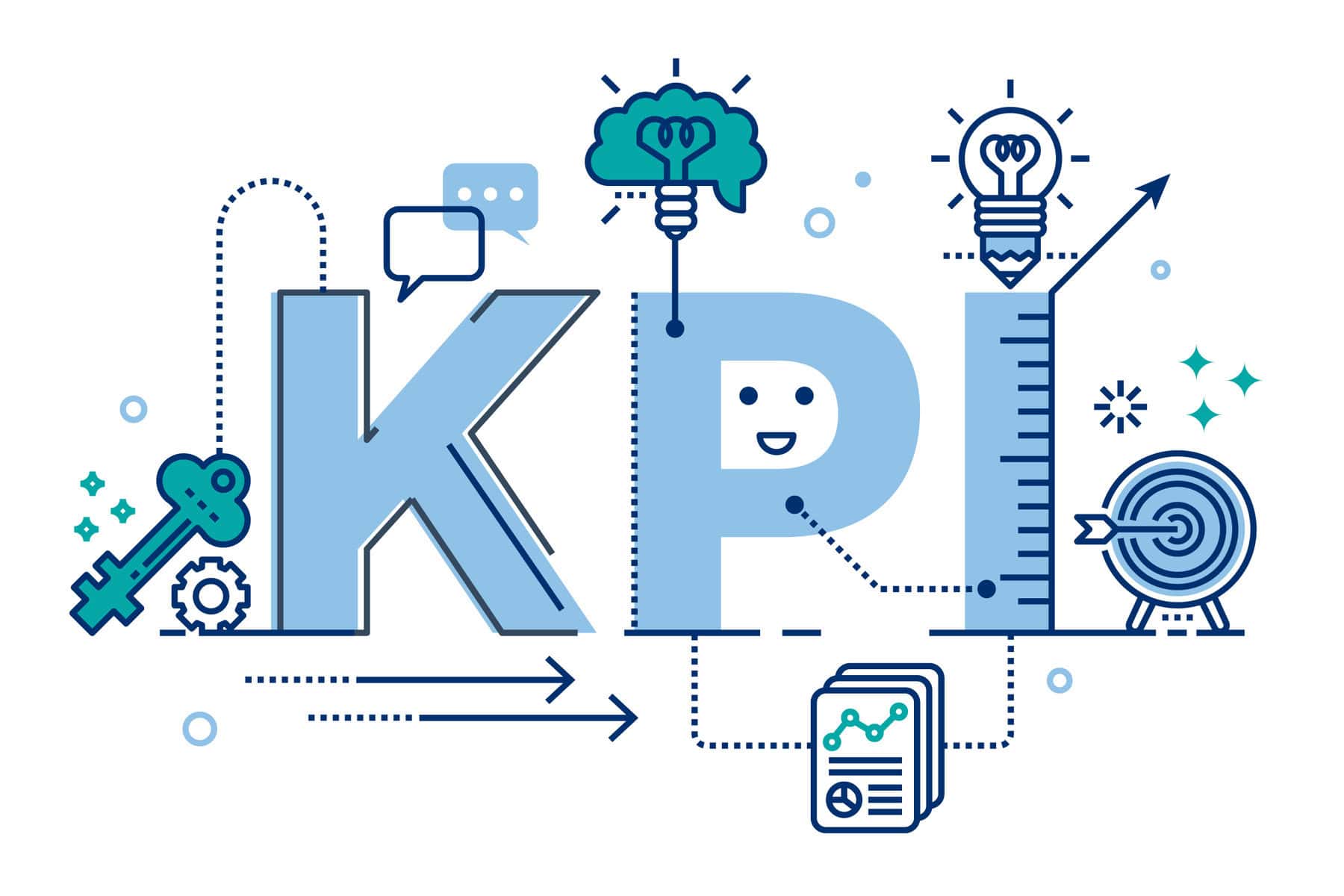“Half the money I spend on advertising is wasted; the trouble is I don’t know which half.” – John Wanamaker (1838-1922 – merchant, political figure, and marketing pioneer.)
There’s a good reason why data is routinely described as the new gold rush for businesses. Before the Internet exploded across the globe, companies found it difficult to connect with customers, speed up their services, carefully monitor the business climate and react to ongoing trends and changes. But the advent of the World Wide Web has revolutionized how business is conducted and helped to create a much more efficient market. Today, in the digital era of global connectivity, businesses are able to learn about trends that may affect them, observe consumer behavior, obtain valuable information about the interests and purchasing habits of specific demographics, discover products that could enhance their service, and increase their knowledge of the industry. As a consequence, today’s marketers are able to effectively develop, tailor and target highly-personalized campaigns, and connect with the right customers at the right time with the right message on the right channel. But it all relies on those same marketers being able to collect, analyze and draw insights from data. For the first time in history, marketers can help John Wanamaker understand which half of his advertising spend is being wasted – and it’s all thanks to digital marketing data analytics.
Digital Marketing Data Analytics
Consumers are spending more time – and more money – online than ever before. Ecommerce is projected to be the largest retail channel in the world by 2021, with figures curated by Statista.com forecasting that consumers will spend up to $4.8 trillion online in that year. And it’s a similar story in the B2B realm. A report from Forrester suggests that the US B2B eCommerce will reach $1.8 trillion and account for 17% of B2B sales in the US by 2023, while globally, Frost and Sullivan predict that B2B eCommerce sales will reach over $6.6 trillion by 2020, surpassing B2C eCommerce sales valued at $3.2 trillion.
With digital sales skyrocketing, the importance of digital marketing for both B2C and B2B brands is expanding rapidly in every industry – and digital marketing data analytics is the critical success factor.
Data is the heartbeat of your digital marketing engine. You need digital marketing so you can reach your customers where they are – online. But, without digital marketing data analytics, you’re flying blind.
The value of digital marketing data analytics lies in its power to transform raw data into actionable insights that can be used to make evidence-based decisions, and thereby gain competitive advantage and drive profit.
How? Well, digital marketing data analytics is all about measuring and analyzing marketing performance in order to maximize its effectiveness and optimize return on investment (ROI). With digital marketing data analytics, you can:
- Identify the benefits, costs, and success factors of each of your campaigns
- Identify which campaigns are worth expanding and which ones can be scrapped
- Determine which channels reach the widest audience, or which channels reach your target audience most effectively
- Pinpoint which customers are repeat customers, willing to spend the most, and willing to refer your business to others
- Identify cross-selling and up-selling opportunities
- Improve customer experience and buyer journeys through greater personalization
- Predict future trends and optimize campaigns to meet them
Ultimately, digital marketing data analytics gives marketers the insights needed to measure and drive business metrics. By analyzing consumer behavior and campaign performance, marketers can make informed decisions on where to invest in order to create brand and product awareness, drive traffic, generate leads and increase sales. It also enables marketers to gain the complete, unified, 360-degree view of the customer – who they are, where they’ve come from, what content they’ve engaged with, what they’re buying, when they’re buying it, how often, and at what price.
Without digital marketing data analytics, marketers can do little more than simply take a guess at what’s working, what’s not, and who the customer is – and then cross their fingers and hope things go well.
The Marketing Analytics Market Is Growing
Companies all over the globe are using digital marketing data analytics to improve their marketing efforts. According to Verified Market Research, the global digital marketing data analytics market was valued at $2.09 billion in 2017 and is projected to reach $5.52 billion by 2025, growing at a CAGR of 12.9%
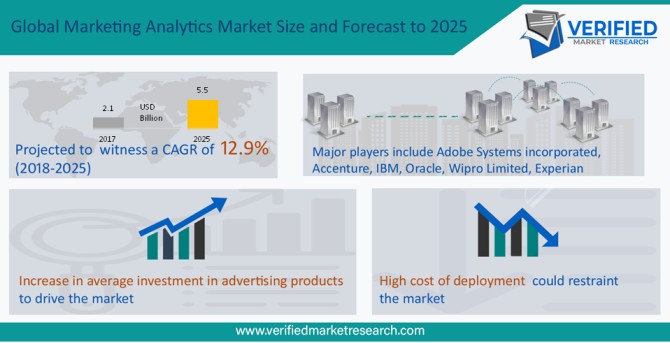
(Image source: verifiedmarketresearch.com)
Figures from BuiltWith reveals that over 72 million websites are using analytics tools – and that’s just websites. Digital marketers are tracking everything else as well – social media engagement, email open rates, ad performance, content downloads, comments, mentions, impressions – you name it – all in the pursuit of collecting and analyzing the data required to improve the view of the customer and gain actionable insights to improve customer journeys and experiences.
They’re using an abundance of tools to do so. Looking at G2’s Digital Analytics Software grid, we get a glimpse of the software available that marketers and analysts are using to report on the effectiveness and popularity of web experiences and determine how visitors are finding and interacting with their sites.
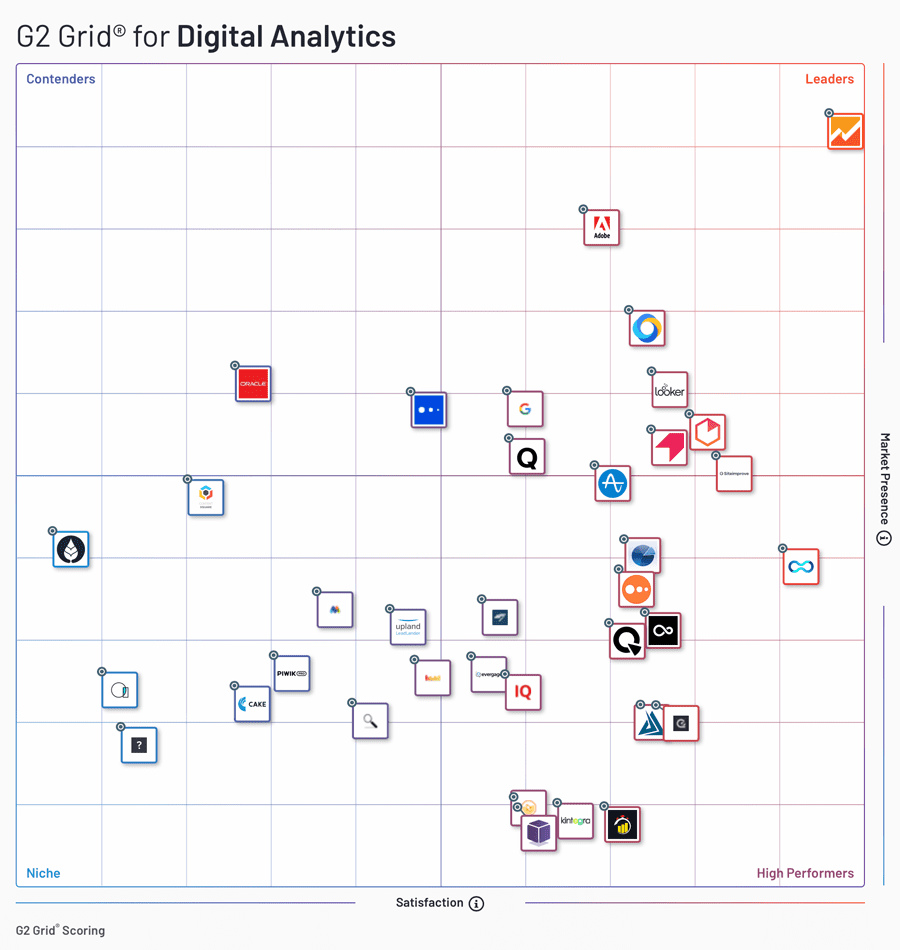
(Image source: g2.com
A more comprehensive list can be found on the Martech 5000 Supergraphic from ChiefMartec.com, in which we can see that there are literally hundreds of analytics tools on the market, enabling digital marketers to track and measure absolutely everything.
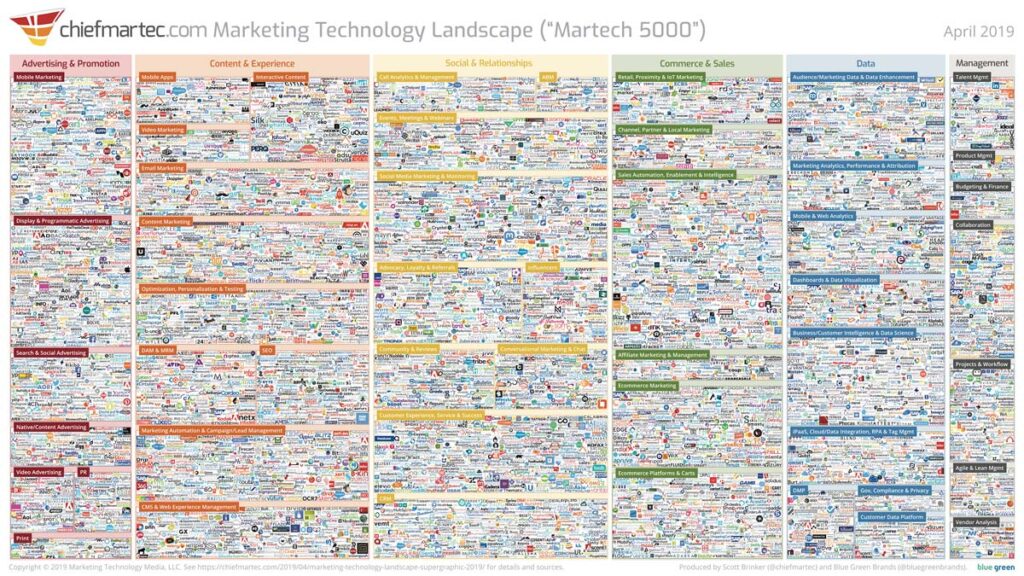
(Image source: chiefmartec.com)
The organizations that use these digital marketing data analytics tools have the ability to understand customer and prospect engagement, and pinpoint acquisition from every strategy, tactic and investment they make. There’s no flying blind here – with marketing analytics, marketers can determine the ROI of every lead, every prospect, and every sale that’s made. What’s more, they can easily identify the sources where these leads came from, and what those leads did when they arrived at their digital properties. In this way, they can understand engagement, discover missed opportunities, identify churn and retention issues, and thereby optimize strategies and maximize returns on every cent spent on marketing.
In short, what we’re talking about here is a serious competitive advantage – and that is precisely why you need digital marketing data analytics.
Final Thoughts
Data collection and analysis provides organizations with greater insight into the lives, behaviors, preferences and desires of customers. In addition, it offers greater insight into the success and effectiveness of marketing campaigns and strategies, removes the guesswork, and provides concrete, actionable information on which to base important marketing decisions – both now and in the future.
Indeed, there are essentially four types of analytics that marketers and analysts can use to drive their decision-making. These are:
- Descriptive analytics: Answers the question: “What happened?”
- Diagnostic analytics: Answers the question: “Why did it happen?”
- Predictive analytics: Answers the question: “What is likely to happen next?”
- Prescriptive analytics: Answers the question: “What do I need to do next?”
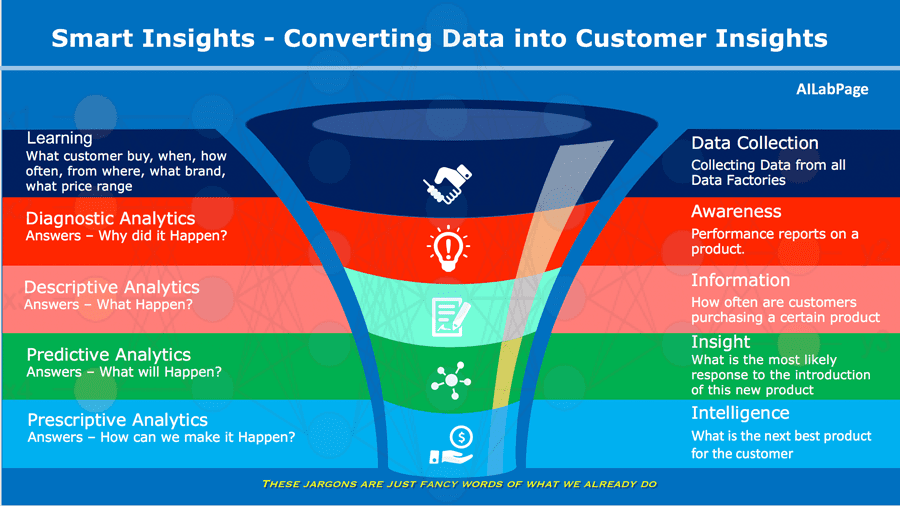
(Image source: vinodsblog.com)
Naturally, the further down the list we go, the more advanced the analytics toolset needs to be, and the greater the investment required to acquire it. But organizations can’t afford to wait around while their competitors are building their technology stacks and expertise to extract the intelligence from data that will ultimately win new customers. To remain competitive in the data-driven business world, the time is now to start investing in digital marketing data analytics, and begin unlocking the key insights that will help you make informed decisions and drive your business with reliable, scalable returns.
GoTo Marketers is an award-winning, full-service digital marketing agency. As proven subject matter experts in B2B and B2C marketing strategies and tactics, we leverage digital marketing data analytics to help you make the best possible marketing decisions and ensure you get the best possible outcomes from your marketing investments. Get in touch to find out how our proactive marketing solutions will help you get the best results across every campaign.




